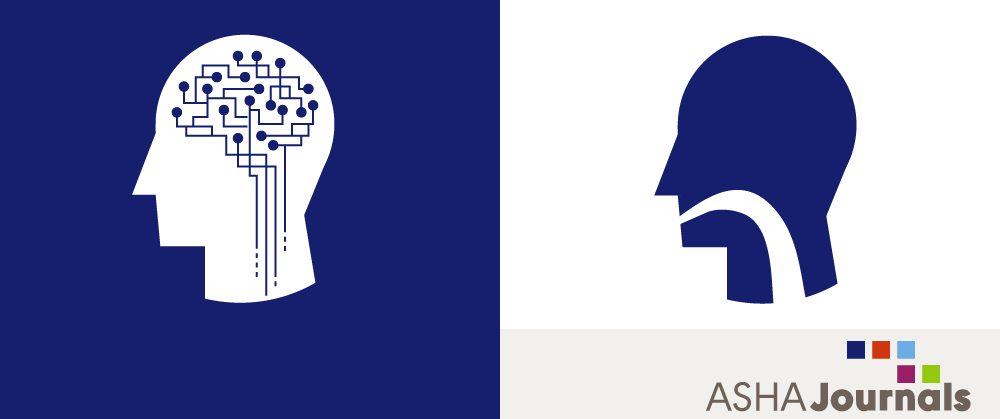The ASHA Journals cover such a variety of topics across the professions that, sometimes, it may be challenging to decide what to read next. This month, we’d like to highlight two specific topics in recognition of Aphasia Awareness Month and Dysphagia Awareness Month.
Aphasia Awareness Month
Aphasia is a language impairment resulting from brain injury, most often due to stroke, head trauma, tumors, or infection. There are a variety of subtypes of aphasia based on whether or not the person is speech fluent, can comprehend commands, and can repeat words or phrases. The articles below discuss the latest in aphasia care in a variety of settings as well as the comorbidity of depression and anxiety with aphasia.
Videoconference Administration of the Western Aphasia Battery–Revised: Feasibility and Validity: In this particularly poignant study, authors administered the main test for language impairment in aphasia remotely via videoconference and in person to the same group of patients and compared the results.
Designing Occupational Therapy Home Programs for People With Aphasia: Aphasia-Friendly Modifications: Many occupational therapy recipients enjoy the independence of being able to complete assignments independently at home. This article looks at instruction modifications to guide people with aphasia through their at-home programs.
Video-Implemented Script Training in a Bilingual Spanish–English Speaker With Aphasia: Although 20% of adults in the United States are bilingual, only 7% of speech-language pathologists (SLPs) speak more than one language. To help SLPs working with clients who are bilingual, authors discuss a script-training treatment they’ve developed for one bilingual patient.
Exploring Associations Between a Biological Marker of Chronic Stress and Reported Depression and Anxiety in People With Aphasia: Chronic stress, depression, and anxiety are associated with future health consequences and impaired cognitive function. This study looked at the prevalence of these condtions, as well as the hormone cortisol, in individuals with aphasia.
Dysphagia Awareness Month
Dysphagia is a swallowing disorder that may affect more than 20% of adults over the age of 50 in the United States. Like aphasia, it can be caused by a stroke, head injury, or dementia, but it may also be caused by cancer, developmental or learning disabilities, or gastroesophageal reflux disease (GERD). The articles below look at dysphagia in neonatal infants as well as in adults with co-occurring chronic conditions.
Neuromuscular Development in Neonates and Postnatal Infants: Implications for Neuromuscular Electrical Stimulation Therapy for Dysphagia: Although neuromuscular electrical stimulation (NMES) therapy is sometimes indicated for treating adults and children with dysphagia, there is little research on its use in infants. In this article, the authors explore reasons why this therapy may negatively influence the development of the neuromuscular system.
Helping Patients With Head and Neck Cancer Understand Dysphagia: Exploring the Use of Video-Animation: The majority of patients treated for head and neck cancer will experience dysphagia. In this article, a video animation explaining the basics of swallowing was presented to newly diagnosed patients, who discussed their feelings about the video.
The Obligation of Listening: Caring for Patients With Chronic Dysphagia Through Illness Narratives: Many SLPs may not have experience with the chronic conditions that typically co-occur with dysphagia. This article introduces SLPs to narrative ethics and formulating meaningful goals with their patients.
Prospective Investigation of Incidence and Co-Occurrence of Dysphagia, Dysarthria, and Aphasia Following Ischemic Stroke: In a study of 100 patients who experienced their first stroke, 47% developed dysphagia, dysarthria, or aphasia, with 28% receiving a diagnosis of more than one of these conditions. Although these numbers are lower than others that have been reported, the authors stress the important role that SLPs can play in the treatment plans of patients after a stroke.
We hope that you can use these articles to learn a little more about two conditions (i.e., aphasia and dysphagia) that affect millions or Americans—in particular patients who are older or who have suffered a stroke. Looking for more information? The ASHAWire Topic Collections offer more than 300 articles related to aphasia and more than 100 articles focusing on swallowing, dysphagia, and feeding disorders.









